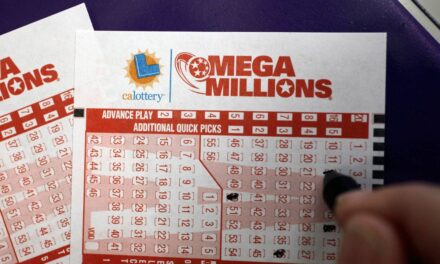Lotteries have been around for centuries. The concept is simple: pay for a chance to win something valuable. What started as a tool for fundraising has grown into a global phenomenon. Today, lotteries generate billions of dollars worldwide. But how did it all begin?
Ancient Beginnings
The origins of lotteries can be traced back to ancient civilizations. The first recorded lottery dates back to the Chinese Han Dynasty, around 205-187 BC. Historians believe these early lotteries helped fund major government projects, including the Great Wall of China.
In ancient Rome, lotteries were used during festivities. The Roman emperors organized them to distribute gifts to the wealthy. Everyone who attended received a ticket, and prizes ranged from fancy dinnerware to slaves. Although these lotteries weren’t commercial, they set the foundation for what was to come.
Lotteries in Medieval Europe
Lotteries as we know them today started in Europe. In the late 15th century, cities in Flanders and Burgundy (modern-day Belgium and France) held public lotteries to raise money for fortifications and public services. The practice spread quickly across Europe.
In 1449, the first known English lottery took place, organized by King Henry VI. The money raised was used to repair London’s defenses. A few decades later, Queen Elizabeth I authorized the first official English lottery in 1569. The goal was to raise funds for public projects, and the prizes included both cash and valuable items like tapestries.
The Rise of National Lotteries
By the 17th century, lotteries had become popular throughout Europe. In the Netherlands, lotteries were seen as a painless way to collect taxes. The Dutch state lottery, established in 1726, is the oldest running lottery in the world.
Across the Atlantic, the American colonies also adopted lotteries. In the 18th century, many colonies used them to finance schools, libraries, and churches. For example, Harvard, Yale, and Princeton were partially funded through lotteries. Even the Continental Congress used a lottery to help fund the American Revolutionary War.
19th Century Decline
Despite their early popularity, lotteries faced growing criticism by the 19th century. In Europe and the United States, lotteries were accused of corruption and fraud. Many people believed the organizers rigged the results. Additionally, concerns about gambling addiction began to rise.
These issues led to a decline in lotteries across much of the world. In the U.S., for example, all states had banned lotteries by 1895, after widespread scandals. It wasn’t until the 20th century that they began to make a comeback.
The Modern Lottery Era
Lotteries reemerged in the 20th century, this time with more oversight. In 1964, New Hampshire became the first U.S. state to legalize a state-run lottery. Other states quickly followed suit. Unlike earlier versions, these lotteries were tightly regulated to prevent fraud and ensure fairness.
Internationally, countries like Spain, Italy, and the U.K. launched successful national lotteries. Spain’s Christmas lottery, “El Gordo,” is one of the world’s largest, offering prizes worth billions of euros. Meanwhile, Europe’s EuroMillions, launched in 2004, offers multi-million-dollar jackpots.
Today, lotteries are everywhere. From Powerball in the U.S. to Lotto in the U.K., they remain a popular form of gambling. Governments often use them to fund public projects, just like in the early days.
Lotteries and Technology
In the 21st century, lotteries have gone digital. Online platforms allow people to buy tickets from anywhere in the world. Mobile apps make it easy to check results and claim prizes. Some lotteries even use blockchain technology to ensure fairness and transparency.
These technological advancements have attracted a new generation of players. Despite the innovations, however, the basic concept remains unchanged: buy a ticket, pick some numbers, and hope for a big win.
Why Lotteries Endure
Lotteries have persisted for over 2,000 years. Their appeal lies in the promise of a life-changing win. For a small price, anyone can dream of becoming rich overnight. That thrill, combined with the funding they provide for public causes, keeps lotteries going strong.
While the odds of winning a lottery are slim, that doesn’t stop millions from playing each week. It’s a tradition rooted in history, yet it continues to evolve with the times.
Looking Forward
As lotteries grow, so does their influence. New formats, larger jackpots, and more players mean lotteries are more relevant than ever. Governments will likely continue to rely on them for revenue, and people will continue to chase the dream of hitting the jackpot.
The lottery has come a long way from its humble beginnings. Whether for entertainment or to support public causes, it remains a significant part of our culture—and it shows no signs of fading anytime soon.





